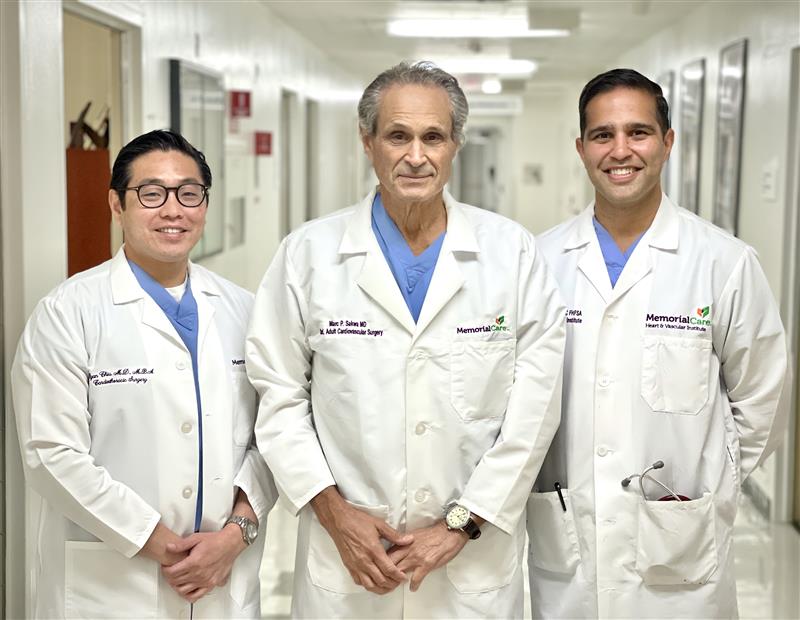Rheumatic heart disease, linked to rare rheumatic fever, leads to high-risk, complex operation—one that many heart surgeons will only encounter once or twice in their careers.
A 64-year-old man with advanced rheumatic heart disease recently underwent a rare and complex three-valve heart replacement surgery at MemorialCare Long Beach Medical Center—an operation performed by Dr. Marc Sakwa, medical director, adult cardiovascular surgery, MemorialCare Heart & Vascular Institute at Long Beach Medical Center. This type of surgery, which accounts for fewer than 2% of all valve procedures, is so uncommon that most heart surgeons encounter it only once or twice in their careers, and most surgeons will never do a case as complicated as this one.
The patient arrived at the emergency room with cardiac complications from rheumatic fever. These complications occurred because of untreated strep throat caused by group A Streptococcus bacteria during his childhood. While the illness is now rarely seen in the United States due to widespread antibiotic use, it can trigger an autoimmune response that damages the heart, leading to rheumatic heart disease. This condition causes inflammation and scarring of the heart valves, resulting in narrowing or leakage that often requires surgical intervention.
“Rheumatic heart disease can complicate valve replacement surgery significantly,” says Dr. Sakwa. “The scarring and calcification of the valves and surrounding structures can make the removal and replacement of these valves extremely challenging.”
To access the heart and replace the three valves, Dr. Sakwa performed a sternotomy, making an incision through the sternum (breastbone). While single- or double-valve replacements are more routine, replacing three valves at once dramatically increases the risk and complexity of the operation. Performing this kind of procedure requires precise execution and specialized training to navigate the heart’s complex anatomy and ensure the new valves are correctly placed and functioning.
“Performing a three-valve replacement surgery on a patient with rheumatic heart disease can be an exceptionally challenging task,” says Dr. Sakwa. “It demands meticulous coordination of surgical techniques, blood flow management, and anatomical precision. I appreciate our team’s skill and dedication in navigating such a complex procedure.”
The Long Beach Medical Center cardiovascular team can perform this intricate procedure on-site, having drawn on extensive experience with single- and double-valve procedures including triple valve surgery. This case demonstrates the medical center’s ability to deliver academic-level cardiovascular care within a community hospital setting.
“I am incredibly proud of our team at Long Beach Medical Center for having the expertise and skills to perform such a rare and challenging surgery,” Dr. Sakwa adds. “Their unwavering dedication and exceptional skill have demonstrated that we will continue to provide top-tier cardiovascular care right here in our community.”
The success of this intricate surgery was not only a testament to the advanced surgical capabilities of the team at Long Beach Medical Center but was also supported by rigorous preoperative planning and comprehensive postoperative care, ensuring the best possible outcome for the patient.


